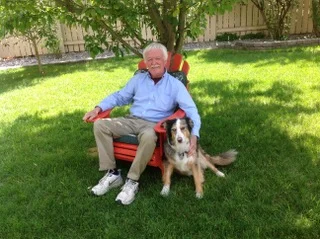Ron Stottlemyer on "Whippoorwill”
As I think about the origins of "Whippoorwill," featured in Issue 11 of Split Rock Review, the phrase "persistence of memory" comes to mind. I couldn't have been more than six or seven years old when I sat on the back porch and learned how to whistle the whippoorwill's song all those years ago. After a page or so of false starts, the poem found its own narrative form, falling into place the way a movie moves us back from a close-up to reveal the different elements of the scene—in this case, Dad smoking slowly, inhaling the smoke for a minute, and pointing to the darkening pasture as the whippoorwill sounded. The rest of the poem seemed to slip out of the cursor: sounds, images, and statements I never imagined appearing before me. It was truly a surprising moment to hear that boy's voice telling the story, long faded with so many others of those lost evenings. I was actually startled with the clarity of the images (the three thin notes of the whippoorwill, the ripple of spring water they resemble), the narrative gestures that I couldn't invent on demand ("Hear that?" Dad pointing with his cigarette hand), and the statements about distance and absence that open up the poem in its closing.
Likewise, the form the poem assumed was quite different from what I had adopted in the last several poems. The simple verse paragraph of narrative was a departure from the more discursive shape of the couplet structure I'd been using to open a space for speaking. Looking through poems written years ago, I saw that the verse paragraph form of "Whippoorwill" was actually a kind of a call to return to that form for writing about a resonant moment of the past. I'm sure that would be obvious to anyone else, but it was news to me.
All of this reminds me of an encouraging insight about writing that Stephen Dunn offers us in Walking Light. Sometimes you look at a good piece of writing you've done and discover, as he puts it, "you can be better than yourself for a little while." I like to think that our motive for sitting down to write isn't the hope of writing a good poem, though that is always near the surface. Nor is it the hope of finishing a manuscript, or even convincing ourselves that we can still write. Rather it's the possibility of experiencing that wonderful moment of exceeding what we thought we were capable of saying. With it, there's also the hope that we may actually rescue a little part of who we have been.
